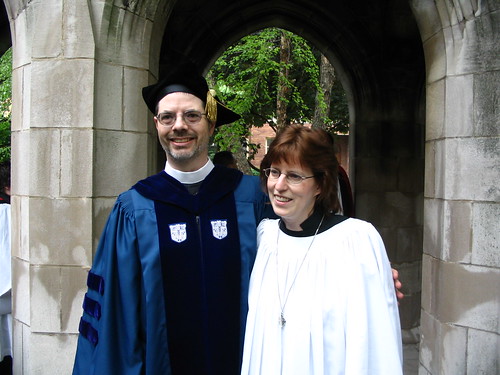Alex Ross’s article in the New Yorker (via Tom Coates) about the ways that sound reproduction technologies have affected listening, performance, and composition, makes points that support many of my arguments about technology and semiotics. I’m too spaced-out to track all the occasions I shouted “Yes!” while I was reading the article, but the whole essay treats sound not as a given, independent of the means by which it’s (re)produced, but as a contextual phenomenon. That seems just right to me, and I’m pleased that this sort of thinking is getting play in an uptown journal such as the New Yorker.
At the sametime, boing boing reports that David Byrne is surveying the same article. He adds (among other things) that the ubiquity of music now makes more evident that extent to which the meaning of a musical selection has contextual determination.
What then becomes valuable in many cases is what music means to people — beyond the actual recording. Part of this meaning is in the song (or whatever) — and not necessarily in the specific recording of it. What it expresses, how it moves people, the worldview and ethos it embodies. Many of these qualities can be in the composition and exist apart from the recording and interpretation of that composition. People like “The Rite Of Spring” but are not everyone is super fussy about which recording they are hearing. Well, some are, but you get my point.
The other part of what music means is embodied in the singer, the band or the composer. It’s not even in the music and can’t be recorded, at some of it can’t. For some of this music the actual musical and lyrical content is almost irrelevant. For some pieces of music what it’s about is the relationship, the connection to, the singer, with their style, attitude, behavior, beliefs and looks more so than with the music, which is more or less relegated in this case to being the soundtrack to the lifestyle and philosophy. At best the music and everything else surrounding it — the videos, the gossip, the reputation, present a common front, a gesamtkunstwerk type piece that embodies what matters to a person.
Most listeners — energetically encouraged by the recorded music industry — haven’t moved their expectations and assumptions from the world of music objects (records, tapes, CDs) to a world in which music constitutes one part o the information flux that surrounds us. Overall, though, I think that inertia, lobbying, and lawsuits can’t hold off this transition more than a very short interval. The sooner musicians and the rest of us move into our new habitat, the sooner we can figure out just how to reward creative expression without restricting access to (increasingly irrelevant) physical media for it. And the last on in’s stuck with a failed business model.


